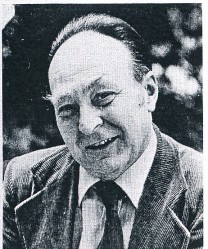Walter Konrad was born in the Saarland region in 1921.
After finishing school he had to participate in World War II. Konrad was nonetheless able to briefly study Anthropology, European Ethnology and Geography at the university in Göttingen in 1941.
After 1945 Konrad continued his studies in Göttingen and graduated wit with a thesis about Friedrich Ratzel in 1948/49. Günter Spannaus was among his teachers.
In 1953/54 Konrad did field research in Algeria, Chad and Cameroon. A year later he took up a position at the Roemer- and Pelizaeusmuseum in Hildesheim, where he worked for the following decades. He not only took care of the renewal of the museum after the damages during World War II but also was responsible for the museums collections.
Moreover, Konrad did further field work: He returned to Chad in 1962/63, where he researched on the Buduma people. Five years later he worked at the Chad Lake, where he also did audiovisual recordings.
In 1974 Konrad became head chairman of the Roemer- and Pelizaeusmuseum Hildesheim, a position he held until his death in 1983.
Throughout his life Konrad had organized a number of exhibitions on several countries (e.g., Gabon, Peru, Iraq, China). Moreover, Konrad was member of the German Association of Anthropologists (Deutsche Gesellschaft für Völkerkunde, DGV) for many years.
(Text written by Vincenz Kokot in March 2012; based on BAA Prof. Riese; photography: Herzog, Rolf (1982): Nachruf auf Walter Konrad, Zeitschrift für Ethnologie 107)
Short Portrait: Walter Konrad

Walter Konrad
 further information
further information

